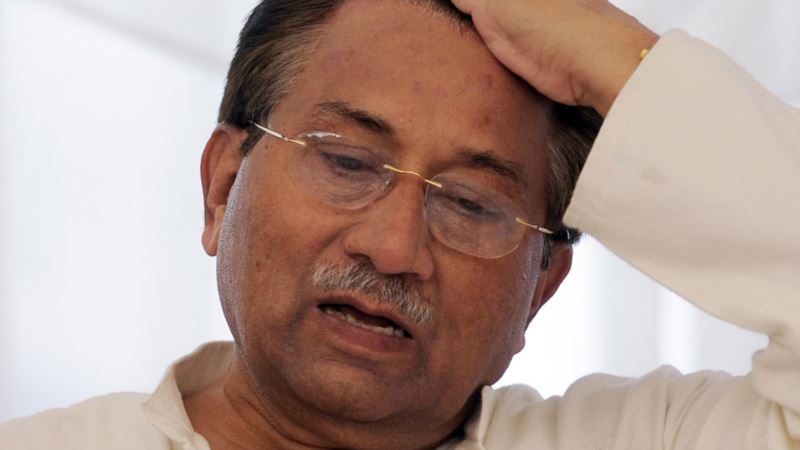
Law Minister Farogh Naseem said on December 19 that the government will ask the Supreme Judicial Council — a forum which holds the accountability of judges — to remove the leader of the three-judge panel that sentenced Musharraf on treason charges.
Naseem said Peshawar High Court Chief Justice Waqar Ahmed Seth violated judicial conduct and that he “has got no authority to be a judge of any high court or the Supreme Court.”
Musharraf, who ruled Pakistan between 1999 and 2008 and is currently receiving medical treatment in Dubai, is the country’s first military ruler to stand trial.
The Special Court in Islamabad on December 17 announced the conviction and sentencing of the 76-year-old ex-strongman, infuriating Pakistan’s army and escalating the tension with the judiciary.
In its judgement, made public later, the panel directed law enforcers to apprehend Musharraf to ensure the death sentence is carried out.
But if found dead beforehand, the judgement said his corpse should be “dragged to D-Chowk, Islamabad, Pakistan, and be hanged for three days.”
The chowk, or square, is located just outside parliament.
Naseem told a press conference in Islamabad that the Supreme Court had previously determined that public hangings contradict the constitution and Islam.
“With due respect, this is an unprecedented, despicable, and completely wrong observation by the judge,” the minister said.
Military spokesman Major General Asif Ghafoor told a news conference on December 19 that the sentence was flawed and described the judgment as being against “humanity, religion, civilization, or any values.”
The army earlier accused the court of ignoring legal processes and defended Musharraf’s patriotism.
Prime Minister Imran Khan’s government also questioned the fairness of the trial and said it had found “gaps and weaknesses” in the sentence.
In a statement on December 19, the Pakistan Bar Council “strongly condemned” the government and military responses to the verdict, accusing them of trying to interfere with the judiciary branch.
It said Ghafoor’s comments were a “clear cut violation of the legal and constitutional provisions” and amounted to “contempt of court.”
In a video statement issued from his hospital bed in Dubai, Musharraf said “this case was taken up and proceeded due to a personal vendetta by some people against me.”